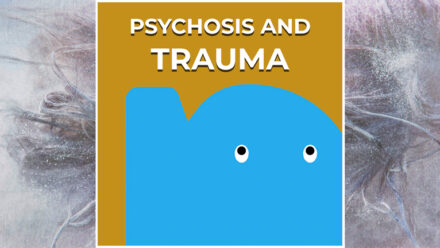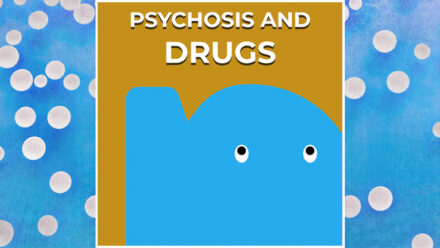
In your brain, the neurotransmitter dopamine is thought by some to play a role in the risk and development of psychosis. This natural chemical is produced by the body and regulates the brain’s awareness of your surroundings and how you attribute meaning to it.
Dopamine thus may regulate the way you perceive the world around you and how you categorise things. As psychosis is a state of ‘hyper-meaning’, dopamine may play a role in mediating this state. However, nobody knows for sure how it works. These are all hypotheses, not scientific evidence.
Neurotransmitters and the brain
The brain consists of billions of nerve cells, each with hundreds of offshoots connecting them to other cells. Together they form a highly detailed and complex network of threads. Neurotransmitters are the chemicals that transmit electrical signals between these cells. Dopamine is only one of them, with many other neurotransmitters (such as serotonin and noradrenaline). Mind-altering substances like alcohol, drugs and medication, have an effect on neurotransmitters and their functioning.
Different neurotransmitters are thought to be associated with different functions. For instance, serotonin may be associated with mood and impulsivity, acetylcholine with memory, noradrenaline with stress, and dopamine with motivation and desires – and also with states of meaning and ‘hyper-meaning’ – psychosis. In reality, however. these functions and the way they are mediated by different neurotransmitters are a lot more complicated as they interact and overlap. We simply do not understand very well how the brain works and how it relates to mental disorders. We do not know if mental disorders are brain disorders – to say that ‘schizophrenia is a brain disease’ is simply poor science. The truth is that we do not know. Mental disorders may be that: mental. Although mental experiences are mediated by the brain, that is different from saying that all experiences have a 1-on-1 causal connection with a biological pathway. Complicated, right?
The role of dopamine
Dopamine plays a part in processing brain signals and helps you attribute meaning to your environment. Compare it to volume controls. All day long, your brain is getting external input (through your senses) and internal input (your thoughts and emotions). You can´t register everything equally strongly, because that would upset your brain. Dopamine regulates the ‘loudness’ of these signals, by dampening or boosting them, but also in a more abstract way: at the level of giving meaning.
Dopamine thus helps you decide whether something is important, and what deserves your attention. It’s like a marker pen for the mind. Everything that is important and should be remembered, is ‘marked’ by dopamine.
Dopamine and psychosis
Lots of research has been done on the role of dopamine in psychosis. We do not understand how it works. A popular hypothesis is that psychosis means that there is too much dopamine in the central region of the brain. The hypothesis is that as a result, signals are registered so strongly that the brain can no longer see the difference between what’s important and what not. The result: your brain is fully focused on everything, and becomes overloaded, overstimulated and you see ‘hyper-meaning’ everywhere. The world around you is filled with personal meaning in such a way that other people cannot relate to it and think you are psychotic.
Antipsychotics and dopamine
Antipsychotics reduce dopamine signals in the brain. In practice this helps the state of hyper-meaning to normalise. The fact that antipsychotics work does NOT mean that the cause of psychosis is in the dopamine system. That would be an error in thinking. For example, eating chocolate may make you feel happy, but that does not mean that happiness is caused by the ‘chocolate centre’ in your brain.
Dopamine Supersensitivity Psychosis (DSP)
After long-term use of antipsychotics, the body will try to compensate for the effects of the medication. Because antipsychotics work by blocking a dopamine receptor, the body will try to somehow undo this blockade. In the 1960s, the scientist Chouinard already explained that this can lead to ‘supersensitivity’ of the dopamine D2 receptor, which could increase rather than decrease risk of psychosis.
Read more about DSP in this blog post by psychiatrist Jim van Os.




